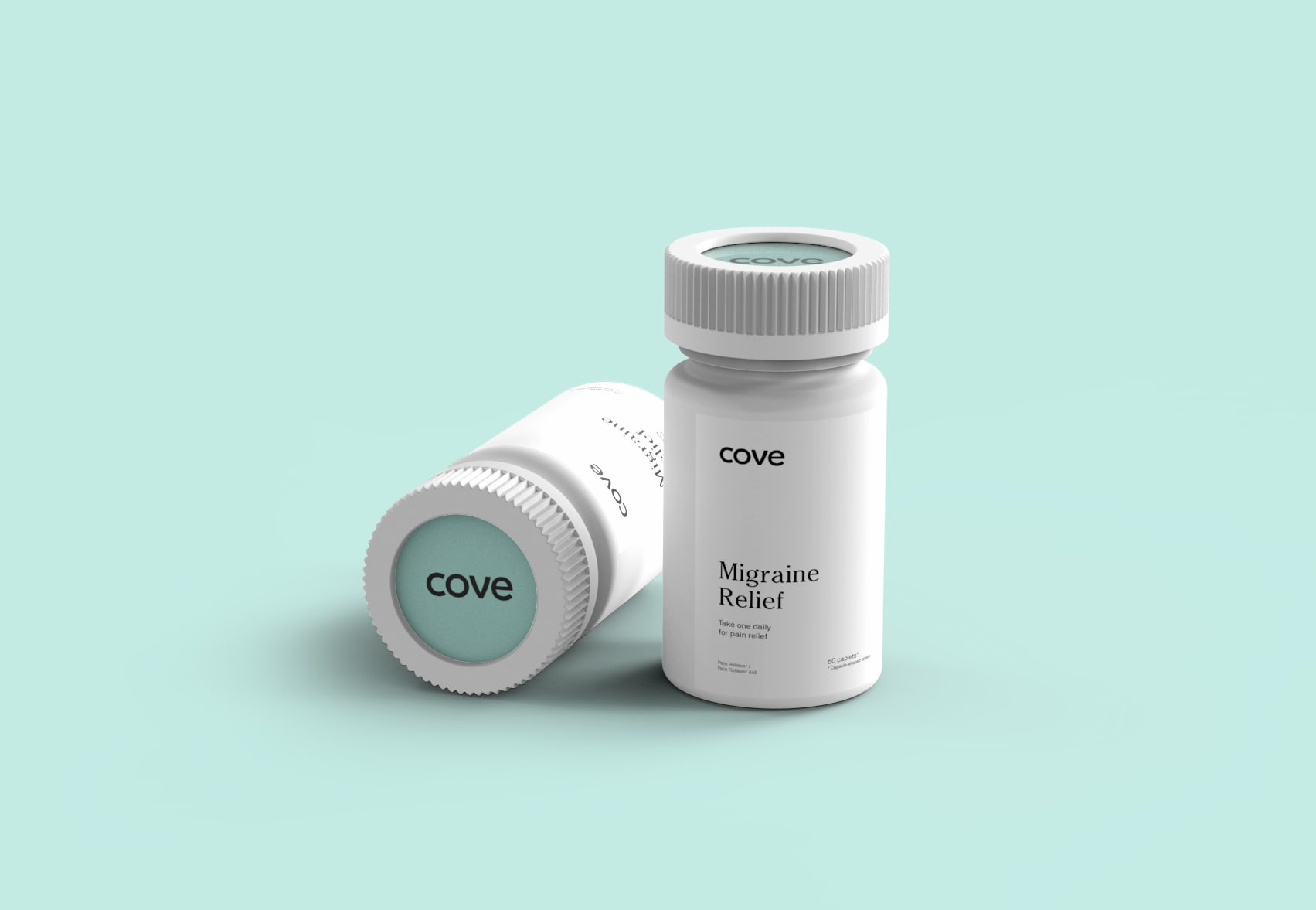Pinpointing your migraine triggers is notoriously tricky. One common culprit for many people though is their menstrual cycle. In fact, it's so common that there's even a name for this type of migraine—menstrual migraine.
Want to understand how hormones impact migraine, and whether hormonal birth control makes headaches better or worse? Keep reading.
What’s the relationship between hormones and headaches?
Hormone levels fluctuate over the course of the month and the menstrual cycle, which can trigger both tension-type and migraine headaches. According to the National Headache Foundation, about 60% of women with migraine experience more frequent or severe headaches around the time of their periods, when estrogen levels drop. Those not on birth control often get these “menstrually related migraine attacks" during the days before and the first three days of their periods.
Is there a difference between migraine headaches triggered by hormones and other types of migraine?
There is no difference in migraine triggered by hormone and other migraine headaches. However, hormonally-triggered attacks do tend to be more predictable and might occur around the same part of your cycle each month.
Can birth control help relieve migraine attacks?
For many people, birth control actually helps prevent migraine attacks. Consistent, correct use may prevent or reduce attacks by providing a stable estrogen level throughout the month, and decreasing or eliminating the pre-period estrogen plunge that triggers attacks.
When you’re not on hormonal birth control, you experience a surge of estrogen during your menstrual cycle that causes your body to ovulate and release a mature egg. Then if the egg isn’t fertilized, estrogen levels drop dramatically before you get your period. The hormones in all combination birth control methods, whether pill, patch, or ring, keep estrogen levels steady to stop an egg from being released, which prevents pregnancy while also preventing the estrogen surge and plunge that can lead to attacks.
Need help finding a birth control that can help you avoid migraine attacks? Nurx can recommend the right birth control for your needs and deliver it to your door.
Why do some people think birth control can cause migraine headaches?
Another way to phrase this question: Can birth control cause migraine attacks or does it just make you more susceptible if you’re already prone to getting them?
When you start on new birth control, it’s not uncommon to have headaches while your body adjusts to the hormones. This often stops after the first two or three months, so don't give up on birth control right away if you start getting migraine attacks on the pill.
Some people do continue to get headaches after those first months, though. They could be extra-sensitive to the hormones in birth control pills, especially the estrogen. If so, they usually do better on a low-dose pill, or a pill that contains only progestin. These progestin-only pills are often referred to as POPs or “mini-pills.”
Then there are others who do fine for most of the month on combination methods that contain both estrogen and progestin, but then get headaches due to the drop in estrogen that occurs when they start the week of placebo pills, or between replacing the patch or ring.
If you find your headaches are triggered or worsened during the inactive pills, it often helps to switch to extended cycle pills, which only have a placebo week every three months instead of every month, or pills with a shortened hormone-free interval.
What is the relationship between migraine aura and birth control? Is birth control risky if you experience aura?
About 20% of people with migraine experience aura, which is typically a warning that the headache itself is about to come on—although sometimes an aura occurs without the headache pain itself.
An aura can include unusual sensory changes such as seeing flashes of light, lines, zigzags, or other visual changes, which is called a visual aura; unusual smells or sensations; and sometimes even numbness or weakness in the face, an inability to speak or understand words, and other unusual sensory symptoms.
People who experience “migraine with aura,” or any changes in vision before or with their headache, should not use any form of birth control containing estrogen, as the estrogen may increase their risk of stroke.
There are many safe birth control options if you experience aura, though, including progestin-only pills (POPs), birth control shots, an intrauterine device (IUD), a contraceptive implant, or barrier methods like condoms, spermicides, a diaphragm, or a cervical cap.
And many folks who suffer from migraine attacks without auras can safely use all birth control methods, including combination hormonal methods like birth control pills, the patch, and the ring.
How do you know if your birth control is causing your migraine headaches?
If headaches or migraine attacks start or get worse when you start a new birth control method, after an increase in dosage, or improve after a reduction in dosage or stopping the birth control, it's quite likely that birth control hormones are to blame.
While it's normal to experience an increased frequency and severity of headaches when you first start birth control, this often improves with time. However, any neurologic symptoms, such as aura symptoms or severe or debilitating headaches, are not a normal birth control side effect, and you should notify your healthcare professional if you experience them.
What should you do if you think your birth control is causing your migraine headaches?
If your headaches start or worsen after you begin birth control, you should talk to the medical provider who prescribed it to you, being specific about when in your cycle your headaches occur (this is when migraine tracking really comes in handy).
There are a number of approaches that might successfully decrease or eliminate your headaches, especially if they’re a problem during the placebo part of the cycle.
You can also learn more about menstrual migraine by watching this webinar featuring Cove Medical Director Dr. Sara Crystal.
Disclaimer
The information provided in this article is not a substitute for professional medical advice, diagnosis, or treatment. You should not rely upon the content provided in this article for specific medical advice. If you have any questions or concerns, please talk to your doctor.
Photo by Angelo Pantazis on Unsplash
The information provided in this article is not a substitute for professional medical advice, diagnosis, or treatment. You should not rely upon the content provided in this article for specific medical advice. If you have any questions or concerns, please talk to your doctor.
Photo by Angelo Pantazis on Unsplash



